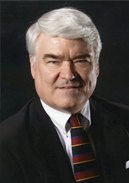Ashley Wright is a mother, wife and high school English teacher in DeSoto. She has an MBA, was an executive team lead for Target and taught for Teach For America in rural Arkansas.
She is also an African-American student in UNT Dallas College of Law’s night program, where she is in the top 10 percent of her class, was awarded the prestigious Sarah T. Hughes Diversity Scholarship and has already interned for Texas Supreme Court Justice Eva Guzman.
The American Bar Association should consider Wright Exhibit A for its push to produce more minority lawyers who are committed to public service and enter the legal profession without mountains of student debt.

But the ABA also may be the reason that Wright never gets a chance to practice law.
Earlier this summer, an ABA committee recommended that the ABA not grant UNT provisional accreditation after determining that the school admits too many students with weak grades and low LSAT scores and that the program has a questionable financial plan, among other factors. If the ABA follows the committee’s recommendation, that means the initial graduating class of Dallas’ first public law school will not be able to take the Texas bar exam next July to become licensed lawyers.
Wright, who still has two more years in school, is more optimistic that UNT will obtain accreditation than most of her 3L classmates who will graduate next May. But she feels the ABA was too hasty to make a decision before giving the school a true chance.
“The struggle for me is I felt [the ABA] was penalizing a diverse school,” Wright said, noting the school is the “exact reform” the ABA seeks, yet the decision comes at a time before students “had the chance to show” the ABA “what they can do.
“I sit next to individuals every night who have so much grit and determination – so much of the perseverance that I think is necessary for a lawyer to be good at what they want to do,” she added.
Wright isn’t the only one scratching her head at the ABA Accreditation Committee’s recommendation. Many others have expressed bewilderment. Perhaps among the most confused is Judge Royal Furgeson, the founding dean of the fledgling law school.
When starting UNT Law, Furgeson said he and his fellow school leaders turned to a January 2014 ABA report “as a blueprint.” The report, which focused on the future of legal education, asserted the ever-growing need for law schools to be more affordable, more diverse, more innovative and more public service-oriented.
It also said the ABA’s accreditation process needs to be less standardized so that law schools are less burdened by “requirements that increase costs without conferring commensurate benefits.”
Furgeson and his team did just that. Currently, tuition at UNT is $15,133 for incoming full-time, first-year students – lower than any other law school in Texas. Recently, UNT became the only law school in North Texas to continue offering a night program, which accommodates students who want to be lawyers but could not pay for school if they had to quit their full-time jobs.
And half of UNT’s student body consists of minorities.
The school markets itself as an affordable and innovative alternative to legal education that admits students who otherwise would not have been able to get into the top law schools that focus heavily on LSAT scores – which greatly drive a school’s ranking. Instead, UNT considers a wide range of qualities that demonstrate a student’s potential to excel as a lawyer – be it work history, military service or other unique qualifications. The school also urges students to use their JDs to better serve the DFW community and to provide more affordable legal services.
“We ought to be who they’re looking for,” Furgeson recently told The Texas Lawbook. “We’re the kind of law school [the ABA] wants to accredit, so we’re going to make that argument as strong as we can make it. I’m not here to fight the ABA. I think their goal is to be fair … but I think in some ways we’re a unicorn out there, and they don’t know what to do with us.”
Even Texas’s highest-ranking judge expressed bewilderment.

“They [the ABA] say to ‘close the justice gap,’ which is typically defined as an impossible problem and have a solution that is never going to be a reality,” Texas Supreme Court Chief Justice Nathan Hecht told The Texas Lawbook in a recent interview. “Here’s a school that’s actually trying to make it real.”
The accreditation committee, which is led by former University of Georgia School of Law Dean Rebecca Hanner White, declined comment for the story.
Leaders from two of the local minority bar organizations also expressed disappointment in the committee’s recommendation and have reached out to UNT offering their support.
Emmanuel Obi, the president of Dallas’ African-American bar association, the J.L. Turner Legal Association, said if there are any takeaways from the ABA’s recent recommendation, it is that the Dallas legal community needs to work harder to support as many students as possible.
Though he doesn’t believe high scores on standardized tests like the LSAT truly measure one’s capability to be a good lawyer, he thinks one way his bar association and others can help UNT is by increasing diversity pipeline efforts through more scholarships for LSAT and bar exam preparation courses in an effort to address the ABA’s concerns.
“My principal response is we need to raise twice as much money this year as we normally do for scholarships and students,” Obi said. “At the end of the day, we need to send a powerful message to the ABA that we as a legal community here in Dallas, Texas are prepared to support these students monetarily and by providing employment opportunities.”

Obi’s other reaction to the news was the ABA’s recommendation is contrary to the American Dream.
“The ABA doesn’t think they’re going to make it,” Obi said. “It’s: ‘We don’t think you have what it takes.’ I think that is just a fundamentally wrong perspective.
“It’s not only fundamentally wrong; it goes against the essence of the American Dream, which is, ‘I live in a country where under the Constitution, I have the protections of life, liberty and the pursuit of happiness,’” he added. “Everyone is entitled to an opportunity, and to deny these students the opportunity to pursue their passion is just not the America I know and love.”
Obi said JLTLA reached out to UNT as soon as the news broke about the ABA committee’s recommendation, and JLTLA members are currently looking into organizing an event for JLTLA members to help UNT students. One of the bar organization’s efforts includes working with community stakeholders to raise funds as part of their upcoming fundraising gala.
“I encourage anyone interested in helping these students to reach out to me and get involved in J.L. Turner’s efforts,” Obi said.
Dallas Hispanic Bar Association President Rocío Cristina García said the DHBA also has reached out to UNT to offer support.

“By penalizing UNT for having students with lower LSAT scores, the ABA is really penalizing students for not having sufficient funds to take an LSAT prep class,” García said. “When you take courses, you end up with a 10 or 15 point difference. The only difference is you had the money to pay for a course – not that you were smarter or better-prepared.”
Currently, the DHBA awards scholarships to four to five students that cover the entire tuition cost of an LSAT preparation course.
Pressure from the Ivory Tower
The ABA’s reluctance to grant UNT accreditation may be rooted in institutional pressure. The committee’s recommendation against accreditation comes at a time when the ABA faces great scrutiny.
A U.S. Department of Education panel recently recommended suspending the ABA from accrediting law schools for one year in light of concerns of high tuition costs, student debt, lack of lawyer jobs and low bar exam passage rates that may result from loose accreditation standards.
Separately, the ABA is considering amending its bar passage standards to require 75 percent of a law school’s graduates who take the bar exam to pass it within two years in order to maintain accreditation. Under the current rules, law schools have five years to meet this standard.
In light of recent scrutiny by consumer advocate groups, the ABA has also made stronger efforts to crack down on some for-profit law schools that design their business models around luring students who probably have no business being in law school, charging them high tuition, and then leaving them “high and dry” – as Furgeson puts it – and inadequately prepared to pass the bar exam.

“We’re continuing to have schools with high tuition and open admission, regardless of test scores,” Furgeson said. “I think we’re being seen through the same lens that those schools are being seen through. They need to look at us in a different way. That’s my argument to them.”
The ABA accreditation outcome with UNT is not yet final. Furgeson said UNT leaders will appear before the ABA Council of the Section of Legal Education and Admission to the Bar – the ultimate authority for law school accreditation – in October to provide more reasons for why the ABA should grant UNT accreditation.
“We plan to give them some additional information that we think will answer their questions,” Furgeson said. “We’re going to have a very strong brief, present information they’ll think is relevant… After they look at the information and hear what we have to say, I think they’re going to think long and hard before not accrediting us.”
Generally, accreditation processes for schools are confidential, but the ABA allowed for Furgeson to disclose the recent development to his students. He did so through a memo that went out to the students on Aug. 5.
“I was so glad they let us release this information. Normally it is never released,” Furgeson said. “I can’t be going through this process and having this important information and not tell these students. I just can’t do it.”
Furgeson said school officials will have a better idea of how the accreditation challenge will affect fall enrollment by the end of this week. He said some might delay beginning law school, while others might take an alternative path.
“Students may make other [plans], and if they want to they have the right to do so with the full information.”
If UNT fails to obtain ABA accreditation in time for graduation in May, Chief Justice Hecht said he would lean toward waiving the accreditation requirement for UNT’s 2017 graduates so they can sit on the bar exam.
Hecht said the Texas Supreme Court has previously done this for Texas law schools that struggled with obtaining accreditation. One was the now-defunct Reynaldo G. Garza School of Law in San Benito. The other was the DFW Law School in Irving, now known as Texas A&M University School of Law.
“The Supreme Court has done it every time it’s been asked when there were compelling circumstances,” Hecht said.
© 2016 The Texas Lawbook. Content of The Texas Lawbook is controlled and protected by specific licensing agreements with our subscribers and under federal copyright laws. Any distribution of this content without the consent of The Texas Lawbook is prohibited.
If you see any inaccuracy in any article in The Texas Lawbook, please contact us. Our goal is content that is 100% true and accurate. Thank you.
